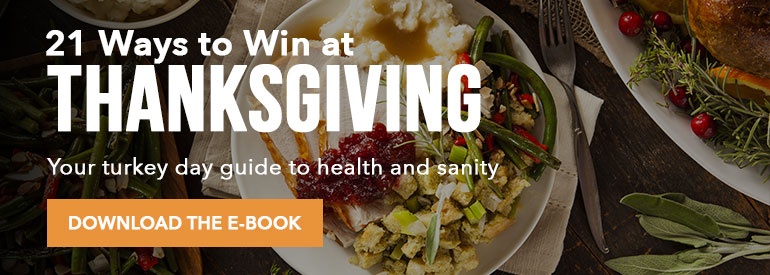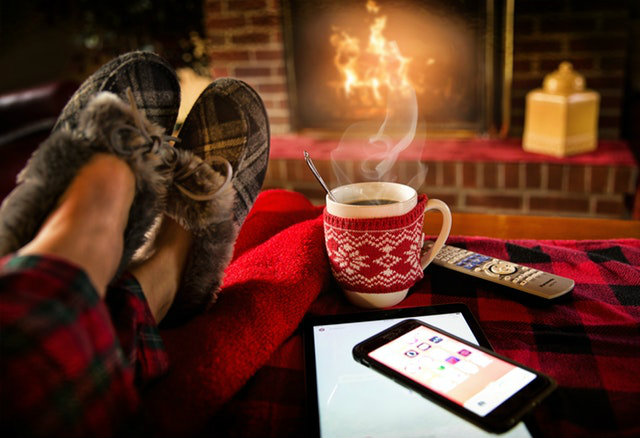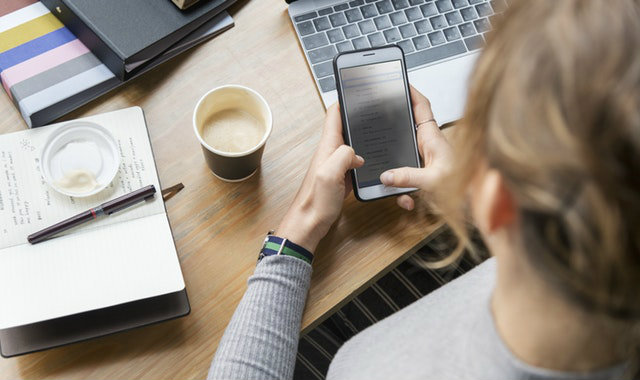
How could another year possibly be coming to a close? I mean, it feels like I just had a birthday…in June. Remember how, as a kid, summers lasted forever? Now, with each year, time seems to speed up. A day flashes by and I think, “Here I am again, ending a day when I feel like it just got started.”
For decades, we’ve been told that gadgets and state-of-the-art appliances afford us the time to enjoy life and work less. Nowadays, we can run just about every aspect of our lives by only “lifting a finger.”
So, where is this promised downtime and why don’t I remember what I did yesterday? With all the advancements designed to make our lives easier, most of us are feeling more stressed. It’s as if there are not enough hours in the day.
The good news is we have more control over our time than we credit ourselves. Through awareness of how we spend each moment and a commitment to giving more attention to ourselves and our environment, we can create more time just in time for the holidays.

Why We Experience Increased Feelings of Busyness
Professors John P. Robinson and Dr. Geoffrey Godbey co-authored the book Time for Life: The Surprising Ways Americans Use Their Time. Over decades, they’ve studied thousands of time diaries recorded by Americans. The data from these diaries indicate that we have more free time than ever before. Yet, our perception is that we have less down time.
The reality lies in a shift in lifestyle and consumer habits:
- Pace of task completion: Technology’s efficiencies drive us to maximize output. We do things faster and process far more in a short amount of time.
- Free time increments: Free time used to come at the end of a workday or in large chunks on the weekend. Our lifestyles fracture time into smaller bits to accomplish specific tasks. We fill the gaps between tasks with myriad quick ones. This is called “time deepening.” We are constantly doing something.
By packing our waking hours with layers of tasks, we exhaust ourselves. Our systems struggle to compete with technology’s pace. Our attention span is compromised as we swipe, scroll, ping, click, and tap through another day.

One of the biggest ways we fill the gaps between our tasks is with our phones. In 2017, Flurry Analytics reported, “U.S. Consumers spend five hours a day on a mobile device.” Half of that time was spent in “social, messaging, media, and entertainment applications.”
Consider your usage. Do you automatically turn to your phone:
- When you wake-up
- During meals
- Waiting in line
- Riding in or driving a car
- During a meeting
- Watching a movie or tv program
- Exercising or walking
- Before you go to sleep
- When you’re bored or lonely
If you said yes to most of these, you are not alone. Phones have become an extension of ourselves. Feelings of anxiety can even surface when we’re separated from them.
Typically, we turn to our phones at the slightest hint of downtime, toggling attention to work with leisure or personal activities. And the more we multi-task, the less aware we become of our sensations, thoughts, and surroundings. While multi-tasking, our senses only skim the experiential landscape.
Muireann Irish, a neuroscientist at the University of Sydney, explains that this extreme busyness creates a time contraction effect so time seems to pass quickly. As an example, imagine the sights, sounds, smells, and touch sensations experienced on a leisurely walk around the block versus a rapid drive. The details registered while driving are less memorable. The trade-off is that we can cover several blocks in the time it would take to walk the original loop.
Said another way: multi-tasking has us careening through life. We sacrifice quality for quantity.

The Physical and Emotional Ways We React to Busyness
Constant busyness also creates physical stress. According to the Mayo Clinic, “nerve and hormonal signals prompt the adrenal glands, located atop your kidneys, to release hormones, including adrenaline and cortisol.” This triggers a host of responses:
- Increased heart rate
- Elevated blood pressure
- Increased sugars (glucose) in the bloodstream
- Altered immune system responses
- Suppressed digestive system
- Suppressed reproductive system and growth processes
At times, this can feel exhilarating. Our systems are designed to help us power through critical junctures. But sustaining that level of stress can contribute to anxiety, depression, headaches, insomnia, and memory or concentration impairment.
It’s easy to justify the madness: we must keep up and stay connected to friends, family, and professional groups. We feel obliged to stay on top of the latest news, cable series, apps, games, music, fashion, sports, lingo, and other trends.

According to an article in Fast Company, Americans took in five times as much information every day in 2011 as they did in the entire year of 1986. Disturbing, isn’t it? It’s only gotten worse. Staying mentally nimble is a critical 21st century skill that requires focus. It should not be confused with information overload.
Being so busy can also be an emotional addiction. It makes us feel relevant and indispensable. What we need and what others need from us is deep connection. Our infatuation with busyness is often in lieu of needed attention to our holistic well-being.
What Is Behind Your Busyness?
Reflect on the motivation for your own busyness and the choices you make minute-by-minute:
- How many tasks do you attempt in a typical hour?
- How long are the gaps you allow between tasks?
- What do you do in those free moments?
- How many times do you look at your phone in a day?
- How much time is spent on non-essential screen time?
- How often are you doing more than one task at a time?
Notice any emotional and physical responses to busyness:
- Do you mostly perceive time as passing quickly?
- Are events of the day memorable or a blur?
- Does your heart rate stay consistent or does it race?
- Is your breathing deep and slow or shallow and quick?
- Do you feel agitated or uncomfortable doing nothing?
- Do you feel more alive when you’re crazy busy?
Once you have awareness of your habits, decide if you are ready shift into a lower gear. If so, try making small adjustments that you can adhere to every day for at least a month. That way you can evaluate their impact.
How to Go on a Digital Diet
First, let’s work on reducing the negative inputs. Here are a few suggestions:
- Turn off device notifications that distract and allure.
- Schedule special time for social media; resist the temptation of the moment.
- Avoid all news one day a week (the world will go on).
- Create no-device zones in your home, like the dinner table.
- Commit to a 30-minute no-screens-allowed buffer before and after sleep.
- Remove apps from your phone that are known rabbit holes.
The next step is to then replace those digital “empty-calories” with high-value positive pauses. These pauses can range in length from thirty seconds to five minutes, and they are intended to be simple activities that connect your body and mind with the moment.
Examples:
- Incorporate a few big stretches and deep breaths any time of day.
- Take a silent walk. Notice all the sounds near and far.
- Sing, hum or whistle a favorite song.
- Savor one meal each day. Appreciate the effort it took by others to provide it.
- Notice the sky, then a cloud, then a plant, then a bug. Go from big to small.
- Light a candle and watch the flame.
- Scan for tension in the forehead, jaw, or shoulders. Breathe and let go.
- Doodle, draw, scribble, color.
- Free write in a journal whatever thoughts you are having.
You Have the Power to Create More Time
Old habits are hard to break; new habits are hard to form. But it’s time to make your well-being a priority. Try these adjustments or create your own – whatever brings you happiness and more awareness of the moment. Commit to a few as a regular mindfulness practice to help you flow through your day and have the time of your life.



































